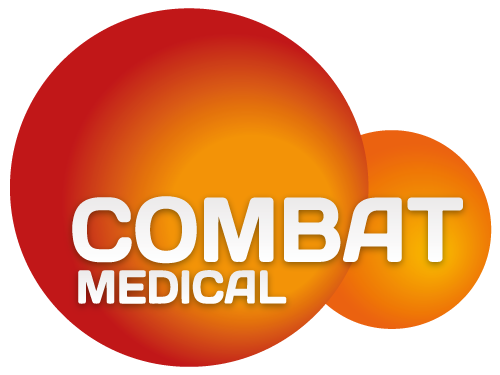Fascinating research into the link between pancreatic ductal adenocarcinoma (PDAC) risk and elevated insulin levels has just been published in Cell Metabolism (Zhang et al).
For the first time, we’ve now got a detailed explanation of why people with obesity and type 2 diabetes are at higher risk of PDAC, the most common type of pancreatic cancer and a highly aggressive type with a five-year survival rate of under 5%.
In a nutshell, excessively high insulin levels overstimulate the pancreatic acinar cells which synthesise digestive enzymes. This causes inflammation that can lead to the development of precancerous cells.
Given increased rates of obesity and type 2 diabetes, this discovery could help with cancer-prevention strategies, including helping patients diagnosed with PDAC reduce their levels of blood glucose and circulating insulin.
“Hyperinsulinemia acts via acinar insulin receptors to initiate pancreatic cancer by increasing digestive enzyme production and inflammation” Study link: https://www.sciencedirect.com/science/article/abs/pii/S1550413123003728?via%3Dihub
_______________________________________________________ About Pancreatic Cancer Awareness Month
In November, the world turns its attention to a critical healthcare event – Pancreatic Cancer Awareness Month. Since the early 2000s, this global campaign has been shedding light on one of the most deadliest of cancers. The month of November, therefore, serves as a beacon of hope and knowledge. Its primary objective is to educate individuals about the intricacies of pancreatic cancer, a disease that often lurks in the shadows until it’s too late. This annual event brings together international and local organisations to emphasise the urgency of early diagnosis, effective treatment, and prevention strategies.
16th November is World Pancreatic Cancer Day
A pivotal moment during Pancreatic Cancer Awareness Month is the observance of World Pancreatic Cancer Day, scheduled on the third Thursday of November. In 2023, this crucial day falls on the 16th of November. It serves as a focal point for raising awareness and rallying support for those affected by this devastating disease.
The Need for Pancreatic Cancer Awareness
Pancreatic cancer, often referred to as the silent killer, is the 14th most common cancer globally and the 7th leading cause of cancer-related deaths. It is, perhaps unsurprisingly, far more common in developed countries, with lifestyle being such an important factor in its proliferation.
The Purple Ribbon Campaign
Pancreatic cancer awareness month is symbolised by the purple ribbon on the medical calendar. This emblematic ribbon represents the collective commitment to combat the nemesis that is pancreatic cancer. Unfortunately, this cancer receives insufficient funding and is notorious for being “difficult to treat.” Shockingly, survival rates have stagnated at a dismal 3-8% for nearly five decades.
The Link Between Pancreatic Cancer and Insulin
Recent research from Canada has unravelled a direct connection between high insulin levels and pancreatic cancer. Published in Cell Metabolism, this groundbreaking study sheds light on why individuals with obesity and Type 2 diabetes face an elevated risk of developing pancreatic cancer.
The Insulin Overdrive
The study reveals that excessive insulin levels overstimulate pancreatic acinar cells, responsible for producing digestive juices. This overstimulation triggers inflammation, transforming these cells into precancerous entities. Dr. James Johnson, co-senior author of the study, emphasises the urgency of maintaining healthy insulin levels through lifestyle modifications like diet, exercise, and, in some cases, medications.
Pancreatic Ductal Adenocarcinoma (PDAC)
Pancreatic ductal adenocarcinoma (PDAC), the most prevalent form of pancreatic cancer, exhibits an alarming five-year survival rate of less than 10%. With the incidence of pancreatic cancer on the rise, PDAC is projected to become the second leading cause of cancer-related deaths by 2030.
Hope for the Future
This research not only deepens our understanding of the role of insulin but also opens doors to new cancer-prevention strategies and therapeutic interventions. Targeting insulin receptors in acinar cells could be a promising avenue for mitigating the risk of pancreatic cancer.
Beyond Pancreatic Cancer: Implications for Obesity and Type 2 Diabetes
The implications of this research extend beyond pancreatic cancer. Elevated insulin levels may also contribute to the initiation of other obesity- and diabetes-related cancers. Collaborative efforts in research and clinical practice aim to uncover these connections and develop preventive measures.
Preventive Measures for Pancreatic Cancer
While pancreatic cancer has its unique challenges, adopting a proactive approach can significantly reduce its incidence. Here are some essential preventive measures:
- Maintaining a Healthy Weight
- Quitting Smoking
- Moderating Alcohol Consumption
- Avoiding processed foods
- Increasing fruit and vegetable intake
Join the Fight Against Pancreatic Cancer
Pancreatic Cancer Awareness Month isn’t just a passive observance; it’s a call to action. It empowers individuals to join the fight against pancreatic cancer by arming them with knowledge and making informed choices about their health.
A Global Effort for a Global Challenge
This global healthcare event unites people across borders, transcending language and cultural barriers. It underscores the universal need for increased awareness, research, and support for those affected by pancreatic cancer.

